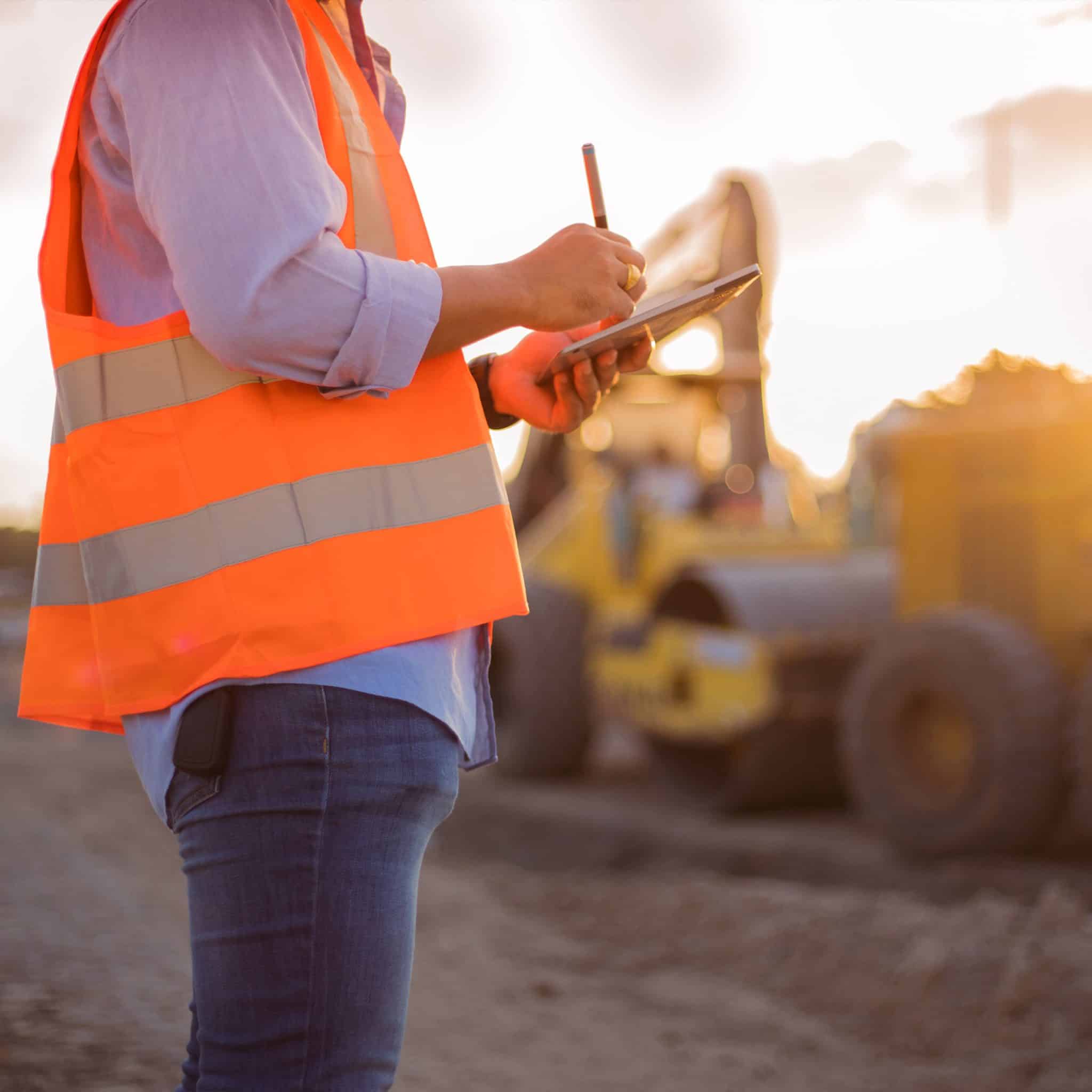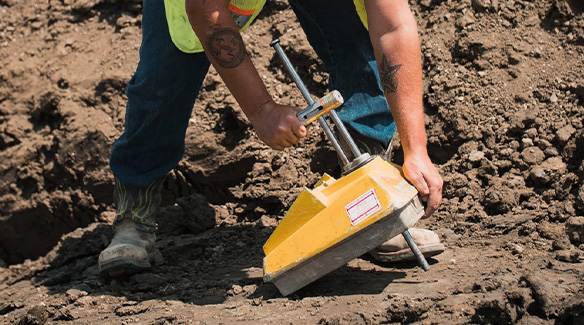Why Employing a Geo Tech Engineer is Critical for Complex Building And Construction Projects
Why Employing a Geo Tech Engineer is Critical for Complex Building And Construction Projects
Blog Article
Recognizing the Necessary Duty of the Geotechnical Sector in Modern Building And Construction Projects and Facilities Growth
The geotechnical market is a cornerstone of modern-day building and construction and framework advancement, supplying critical understandings into soil actions that straight influence project outcomes. Through advanced soil analyses and ingenious design services, geotechnical experts not just guarantee architectural stability however also address sustainability problems in the middle of evolving ecological criteria. As infrastructure needs grow and brand-new difficulties emerge, the value of this field comes to be increasingly evident. What ramifications might these developments have for future tasks and the total security of our developed environment?
Importance of Dirt Evaluation
Dirt evaluation plays a crucial duty in the geotechnical sector, working as the foundation for educated decision-making in building tasks. Precise dirt assessment is crucial for figuring out the suitability of a site for different sorts of frameworks, consisting of household homes, business structures, and bridges. By examining dirt structure, thickness, strength, and dampness material, engineers can anticipate prospective obstacles and alleviate risks connected with ground instability, erosion, and settlement.
The evaluation process commonly involves a series of examinations and observations that give vital information about the subsurface problems. This data informs the design and construction processes, making sure that structures are constructed on solid ground with adequate support. Understanding the dirt profile allows designers to select suitable building and construction approaches and products, maximizing resource utilization and decreasing costs.
Along with making sure structural integrity, dirt assessment adds to environmental sustainability. By recognizing potential contamination or unfavorable results on surrounding ecological communities, engineers can carry out strategies to shield these all-natural resources. In general, thorough soil evaluation is essential in the geotechnical area, underpinning the safety and security, efficiency, and environmental responsibility of building and construction jobs.
Trick Geotechnical Methods
A selection of vital geotechnical methods are utilized to enhance the stability and evaluate and efficiency of building sites. One foundational method is dirt tasting and screening, which enables engineers to establish the physical and chemical homes of the ground. This information is essential for making educated choices relating to foundation layout and building techniques.
Another essential strategy is site characterization, which includes the in-depth analysis of soil and rock conditions via methods such as borehole drilling and in-situ testing. Methods like Criterion Infiltration Tests (SPT) and Cone Infiltration Tests (CPT) offer useful information on dirt toughness and stratigraphy.
Ground improvement strategies, such as dirt stablizing and grouting, are likewise important in enhancing the load-bearing capability of weak dirts. These approaches can alleviate negotiation and enhance overall website problems.
Furthermore, slope security evaluation is critical for determining potential landslide threats and ensuring the safety of excavations. This analysis often utilizes mathematical modeling and restriction equilibrium approaches to forecast soil actions under different problems.
Incorporating these geotechnical methods right into building and construction preparation not just enhances task results but additionally guarantees the long-term sustainability of facilities advancement.
Effect on Building And Construction Security

Additionally, effective geotechnical design involves executing mitigation methods for determined risks. This might include soil stabilization strategies, preserving structures, or drain systems to relieve hydrostatic pressure. By addressing these factors, building groups can minimize the likelihood of accidents and improve worker safety and security.
Additionally, constant surveillance of website conditions is crucial during building and construction. Geotechnical instruments can provide real-time information relating to ground activity and security, permitting timely interventions when essential.
Fundamentally, the geotechnical industry plays a crucial function in securing construction projects. By prioritizing ground integrity and using strenuous analysis methods, the geotechnical field not just secures the labor force but also contributes to the longevity and integrity of built infrastructure.
Sustainability in Geotechnical Practices

Additionally, geotechnical engineers are now employing advanced modern technologies, Read Full Article such as geosynthetics, which improve soil stability while reducing the volume of material required. This not just preserves resources however also brings about much less waste generation (consulting engineer). The combination of lasting layout concepts right into geotechnical engineering motivates using renewable resource sources in building and construction procedures, additionally decreasing carbon emissions
By conducting these analyses, geotechnical experts can create methods that mitigate negative results, making certain compliance with ecological laws. In general, the emphasis on sustainability within geotechnical techniques not only adds to the longevity and resilience of framework but likewise promotes a liable technique to land and source monitoring.
Future Trends in Geotechnical Engineering
Development is driving the future of geotechnical engineering, as emerging modern technologies and techniques reshape the sector. The combination of sophisticated data analytics and synthetic intelligence is readied to transform website investigation and risk analysis, enabling designers to make even more educated choices based on real-time information. Moreover, the use of geosynthetic products is gaining grip, offering lasting services that boost dirt security and minimize ecological effect.
One more considerable trend is the adoption of automated and robotic systems for tracking and building processes. These innovations not only improve accuracy but also enhance safety and security by reducing human involvement in dangerous atmospheres. Additionally, the implementation of Structure Details Modeling (BIM) in geotechnical style assists in enhanced partnership among stakeholders, maximizing task distribution and minimizing expenses.
As climate change poses brand-new difficulties, the industry is increasingly concentrating on strength and versatility in design techniques, making certain facilities can withstand severe weather condition occasions. The continuous trend towards sustainability will drive advancement in environmentally friendly products and techniques, straightening geotechnical engineering with more comprehensive environmental objectives. Jointly, these trends will certainly form a more reliable, sustainable, and navigate to this site resistant geotechnical landscape for future projects.
Verdict

The geotechnical sector is a foundation of modern building and construction and facilities advancement, offering essential understandings into dirt actions that directly influence task outcomes. consulting engineer.Soil evaluation plays a critical role in the geotechnical sector, serving as the structure for informed decision-making in building tasks. In general, thorough soil analysis is indispensable in the geotechnical field, underpinning the safety and security, efficiency, and ecological responsibility of building jobs
Building and construction safety is substantially affected by geotechnical practices, as the stability and stability of the ground straight influence the total safety of a construction website.In verdict, the geotechnical sector is essential in contemporary building and facilities growth, giving crucial evaluations that make sure architectural stability and safety and security.
Report this page